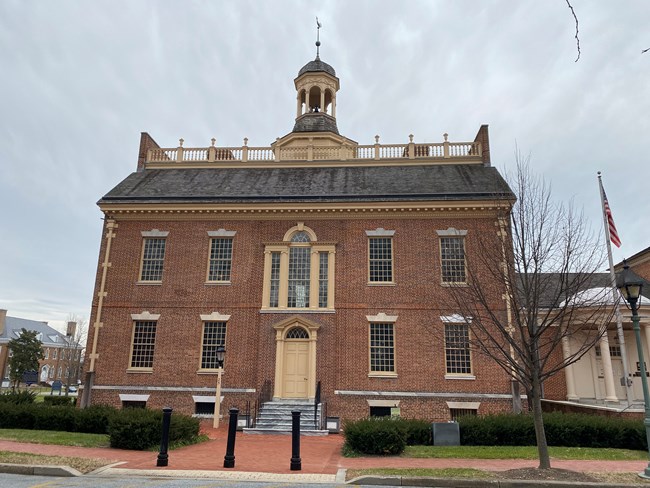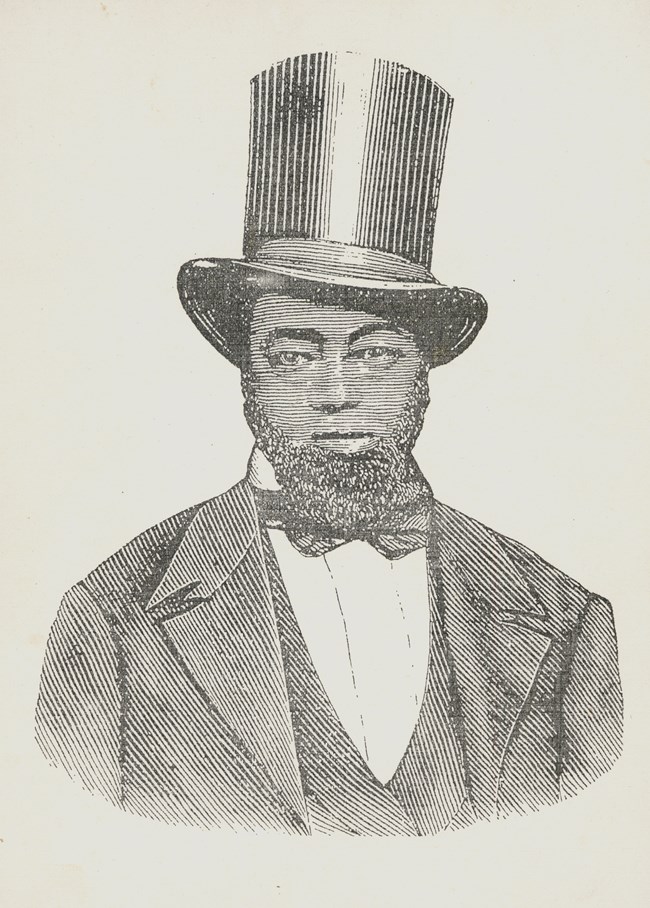
LEARN.Preservation is about more than saving old buildings. You can also preserve items and documents that help you discover stories from the past. Travel back in time with us to the year 1847, before human slavery was outlawed in Delaware. Slavery means that a person owns another person and can tell them what to do without question. In 1847, if someone tried to help an enslaved person they could be arrested, put on trial, and face punishment. Materials Needed:
Instructions:STEP 1: Review the vocabulary terms below. 
Vocabulary:A note for students: Some of the vocabulary terms below are hurtful words if used today, but are commonly seen in historical documents. If you are unsure which words you shouldn’t say, please ask an adult. You can learn more about the words commonly used in a slaveholding society, versus the language the National Park Service and its partners use today, at this website. Slavery was a condition where one person owned another person and was completely in charge of their day-to-day activities. A slave was considered by law as property, or chattel, and was deprived of most of the rights ordinarily held by free persons. Since this was something that was done to someone, today we call them an ‘enslaved person’ to recognize that they were a human being and that being held by an enslaver was not their fault.
A network of people using their homes, farms, businesses, and churches to provide a safe place for runaway slaves and their families. The people involved in this network provided food, clothing and shelter.
A word used in the past for a member of a dark-skinned group of peoples originally native to Africa south of the Sahara Desert. This is a term that was common in slaveholding society but is no longer acceptable to describe someone today.
A word used in the past to describe a person of mixed White and Black ancestry. This is a term that was common in slaveholding society but is no longer acceptable to describe someone today.
A person who hoped to do away with slavery. People involved in the abolitionist movement could be either White or Black and might contribute by speaking out or writing against slavery, giving money or directly aiding slaves to seek freedom.
Samuel D. Burris was a free African American man, meaning he was not enslaved, when this law was written and passed by the Delaware government in 1837. Ten years later, Samuel D. Burris went to court for breaking this law. Take a moment to read through the law below and then pause to think about how it made you feel.
Question:Treating everyone equally is one of the keys to our justice system, but throughout our history it has often been more of an ideal than a reality. Based on your understanding of the law above, does this law treat everyone the same? Why or why not? 
Who was Samuel D. Burris?Samuel D. Burris was a free African American man born and raised in Delaware. As an adult, he was an opponent of slavery, and he decided to help enslaved people escape from enslavers on the Underground Railroad. In 1847 Mr. Burris was caught helping a woman named Maria Matthews escape enslavement. When he was put on trial that Fall, he was also accused of helping two enslaved men escape. The case was heard in the courtroom of the Delaware State House (now the Old State House) in Dover by Judge James Booth Jr. and two other men. In a letter he wrote that appeared in the abolitionist newspaper The Liberator, Mr. Burris described what happened:
Questions:
What did Judge Booth think?At the same time Judge Booth wrote a letter to William Tharp, the Governor of Delaware. In the letter Judge Booth said:
Questions:
Do.In the story you just read above, you saw how Judge James Booth used his voice to make Governor Tharp aware of how he felt about the sentence given to Samuel D. Burris for helping escaped slaves seek their freedom. Writing a letter is one way to make your voice heard by leaders of your local community. Follow these simple instructions, and write a letter to a leader in your community letting them know how you feel about a local event, problem or activity. Instructions:STEP 1: Brainstorm a list of things in your community or school that you would like to change. Also think about who you might write to for each item on your list (for example principal, teacher, governor, city councilperson)
(optional) STEP 5: Have an adult help you find the address for the person you wrote to.
REFLECT.Do you think laws should be rewritten as society changes? If yes, how often should they be revised, and what in your state's legislation would you change first? If no, what are the pieces of legislation that you feel should never change because they reflect the needs and values of society?
|
Last updated: May 11, 2021
